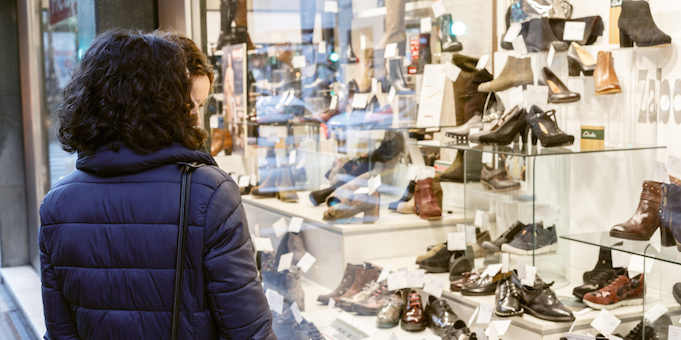
For many small business owners putting music on in their retail stores is as easy as purchasing a CD or turning the radio on.
But while research has shown playing music in stores is good for business, navigating associated licensing obligations has proven much more difficult than flicking a switch.
That’s according to Council of Small Businesses of Australia (COSBOA) chief executive Peter Strong, who is calling for an urgent simplification of music licensing for small businesses, amid concern confusion over music licensing is causing unnecessary headaches.
“If I buy a CD and I put it on there are going to be circumstances where I still have to pay even though I’ve purchased the music,” Strong tells SmartCompany.
“It is still people’s intellectual property, there’s no argument there, yet it’s really odd that I can buy a CD or music online … then I have to spend more to play it.”
Businesses playing background music in their retail stores, including radio, are required to obtain a licence under the Copyright Act.
Licence fees range from about $80 annually for music playing on one device in a 150 sqm store to over $2000 annually for half a dozen devices set out in a larger 2000 sqm store.
Bodies such as the Australasian Performing Right Association and the Australasian Mechanical Copyright Owners Society Limited (APRA AMCOS) and the Phonographic Performance Company of Australia (PPCA) provide licences to businesses on behalf of musicians, but there are longstanding complaints the system is difficult to navigate.
Strong says APRA has recently been cracking down on small businesses playing background music without paying licence fees, a practice he concedes is widespread.
“There’s a lack of awareness, mainly because it’s not logical, we’ve got plenty of red tape as it is,” he says.
Strong believes the system is unnecessarily confusing for business owners, namely that there are multiple licensing bodies and various tiers of licences which can be cumbersome to understand.
Nevertheless, businesses found to be playing music without a licence can be issued with cease and desist notices.
In a statement provided to SmartCompany, APRA AMCOS’ head of revenue Richard Mallett said every sector and business type is treated equally by its “outreach and education programs”.
“For current business owners and managers our outreach approach is always education-first,” he said.
“Once contacted, businesses are readily compliant and take out a music licence when the facts of copyright are explained in full by our team.
“Often a quick check through online resources such as ABLIS, the Copyright Council or industry associations reiterate the legitimacy of our work and the facts behind our conversations and correspondence,” he continued.
Fees slated to increase
Partly in response to what they call “immense frustration” among business owners, APRA AMCOS and the PPCA are negotiating the launch of a joint-venture licensing platform called One Music that promises to consolidate music licensing.
The combined body will hold more than 140,000 public performance music licences currently held by Australian businesses and will see a new licence developed with new fee structures.
The joint venture wants to remove the need to report the number of devices and different types of spaces on licences to simplify the model, but overall fees are set to increase.
One Music has said the “slight increase” in fees has come in response to a review driven by consultation with music creators.
The PPCA has also not reviewed its retail fees in two decades, which has also driven the need for an increase.
Retailers and service providers can expect an average increase of just over 10% under the proposed fee structure, phased in over three years. One Music estimates that one in ten businesses would experience a decrease in annual fees.
It is proposing to charge a $340 flat annual fee for businesses which host music videos in store, and a separate rate of $12 per day for those who spend less than $4000 on featured music from performing artists.
The music video fees are replacements from the PPCA’s current standalone rate and will be cheaper than the current fee.
One Music also proposes to charge retailers a flat annual fee of $550, with limitations, for using music on their websites.
Business owners with existing licences will need to move onto new agreements if the platform goes live.
One Music is seeking further feedback on the proposed fees from industry bodies and individual businesses.
Strong says the fees don’t necessarily break the bank, but that little costs added up for business owners on tight budgets.
“We still come across some people with this strange attitude that businesses are horrible and musicians are victims,” he says.
“We need to make it more logical, and a lot easier.”
This article was updated on October 9 at 1:22 PM to clarify One Music’s proposed fee structure and add detail about PPCA’s existing fees.
NOW READ: You can’t stop the music: How sounds in retail stores divide shoppers


COMMENTS
SmartCompany is committed to hosting lively discussions. Help us keep the conversation useful, interesting and welcoming. We aim to publish comments quickly in the interest of promoting robust conversation, but we’re a small team and we deploy filters to protect against legal risk. Occasionally your comment may be held up while it is being reviewed, but we’re working as fast as we can to keep the conversation rolling.
The SmartCompany comment section is members-only content. Please subscribe to leave a comment.
The SmartCompany comment section is members-only content. Please login to leave a comment.